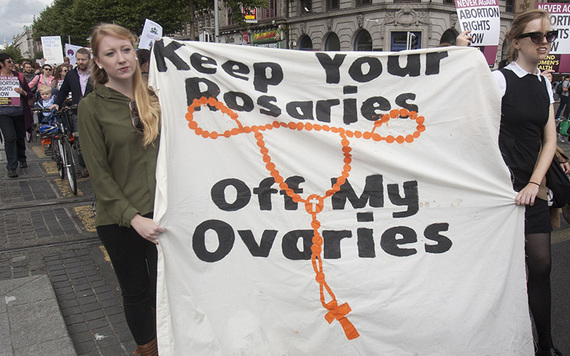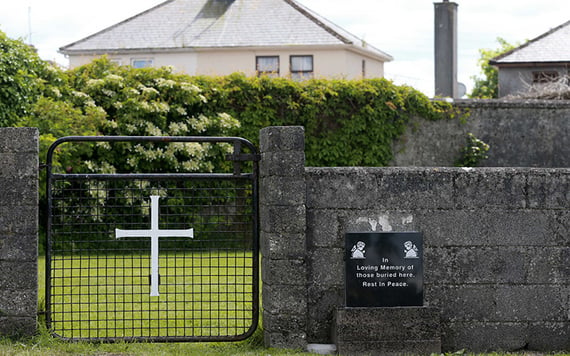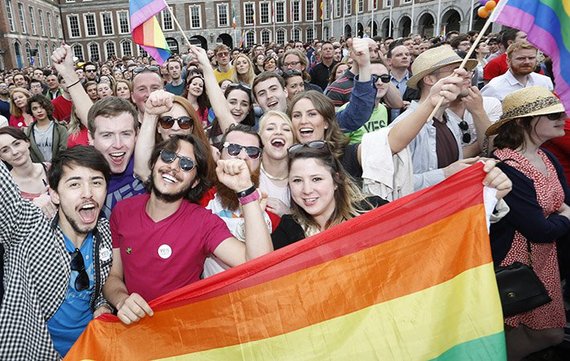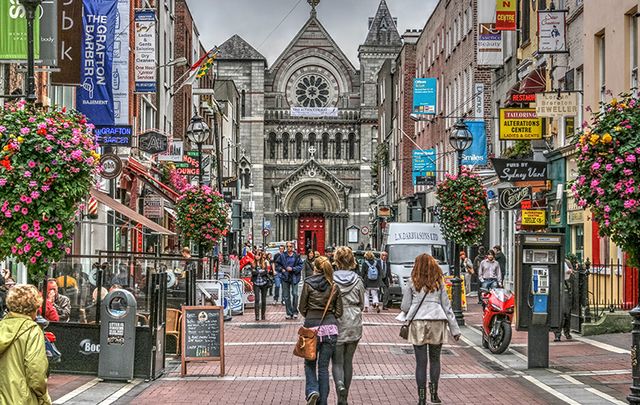The Irish people have learned to respect our differences to live together in peace - we’re in good shape!
In a recent article, well known author and religious affairs columnist T.P. O’Mahony argues that the accelerating decline of religion in Ireland “presents a profound challenge” for the wider society.
The precise moment in time when the Irish people started to abandon their religion occurred in 1968 with the publication of Pope Paul VI’s “anti-contraceptive encyclical Humanae Vitae,” O’Mahony writes.
Instead of accepting the pope’s authority on contraception the majority of Irish Catholics – and Irish women in particular – either questioned the church’s stance or simply turned away from it.
Catholic Church V Women
The pope’s stance, that contraception was always and everywhere a grave evil, led many Irish women to either mislead their confessors about their use of contraceptives or disregard them entirely.

Irish women still campaigning for bodily autonomy 60 years later.
At the start of the 1960s Ireland was still one of the most religiously observant countries in Europe, but by the end of the decade growing dissent had set the course for a new secularism.
Mothers were instrumental in the sea change, since they traditionally passed on the faith, but now they were slowly abandoning both the church and its teachings.
Sexual abuse of children
The seemingly endless child sex abuse scandals that followed in the decades after also contributed to the decline of religious faith, O’Mahony writes. Precisely because the church had occupied such an elevated and unquestioned prestige it’s fall was considered especially shocking, he says quoting Louise Fuller.
“What sharpened the irony was that, of all aspects of morality, the Church was perceived as being particularly concerned to promote sexual morality, and these scandals flew in the face of the strict code of sexual morality so emphasized in the preaching of the Church - these were “sins of the flesh,” which many felt that the Church was obsessed with to the point of promoting prudishness.”
The Irish media, with their increasing scrutiny of the church and its leaders, also played an important part in helping to steer us toward the current moral vacuum or wasteland, O’Mahony claims.

Site of Tuam Mother and Baby Home where recently 800 children's bodies were found in an unmarked mass grave.
Religion and The Troubles
But there were other major factors behind the move away from religion that he ostentatiously leaves out of the picture. He doesn’t mention the war. Not enough has been written about how the interminable conflict in the North impacted the spirit and spiritual life of the Irish over four decades.
It’s not for nothing that the decline of the influence of religion in Ireland coincided in a striking way with the start and end of the Troubles. Every day people witnessed the inability of most of their political and religious leaders to contend with or even express in language the horror our society was living through.

Mural in Derry city dedicated to the blood bath of Bloody Sunday.
They also saw the ways in which religion had fostered and hardened the attitudes that had led to the conflict and fed it and in the process, they reconsidered every aspect of their own participation. It is remarkable to offer a deep meditation on changes to Irish religious practice without acknowledging the lasting impact that the war had on the faith and spiritual life of the Irish themselves.
Meanwhile corporate, white-collar crime only merits one sentence in his article. Considering that our banking system almost bankrupt the country and altered the life trajectories of tens of thousands of us, its effects on how we now see our country and its morality should probably merit some more scrutiny.
Catholic Church’s adoptions for profit
O’Mahony makes no mention at all of the forced adoptions, the adoptions for profit, or the bewildering number of infant deaths that occurred in our Mother and Baby homes at the height of our outward religious fervor. The impact that had on most Irish people was profound.

Nuns in a Mother and Baby Home surrounded by "illegitimate" children.
Catholicism has been part of the Republic’s since its inception he says, running through the social fabric like grain through wood. Its loss, he infers, will lead to growing anti-social behavior, petty crime, serious and violent crime and a general loss of respect for persons and property.
But to consider that religion is the only stay against immorality is problematic in itself. Under the unquestioned rule of the church abuses against the vulnerable were so widespread, so cruel and so ignored or underreported for so long that those who suffered had felt they had no voice.
O’Mahony presupposes that the moral life of the Irish nation was in much better condition for most of the last century under the rule of the church - but is that true?
Wouldn’t it be more accurate to say that for a long time they could simply silence all those who dissented from their dominant view? And isn’t taking away someone’s agency or voice one of the most immoral acts of all?

Thousands celebrate win of same-sex marriage referendum campaign in 2015. Ireland has found its voice!
The great lesson of the Troubles for the Irish people is that we must learn to respect our differences in order to live together in peace. Domination led by one faith or one political party leads only to ruin we discovered. Given that, Ireland’s morality is probably in much better shape than O’Mahony appears to think it is.




Comments